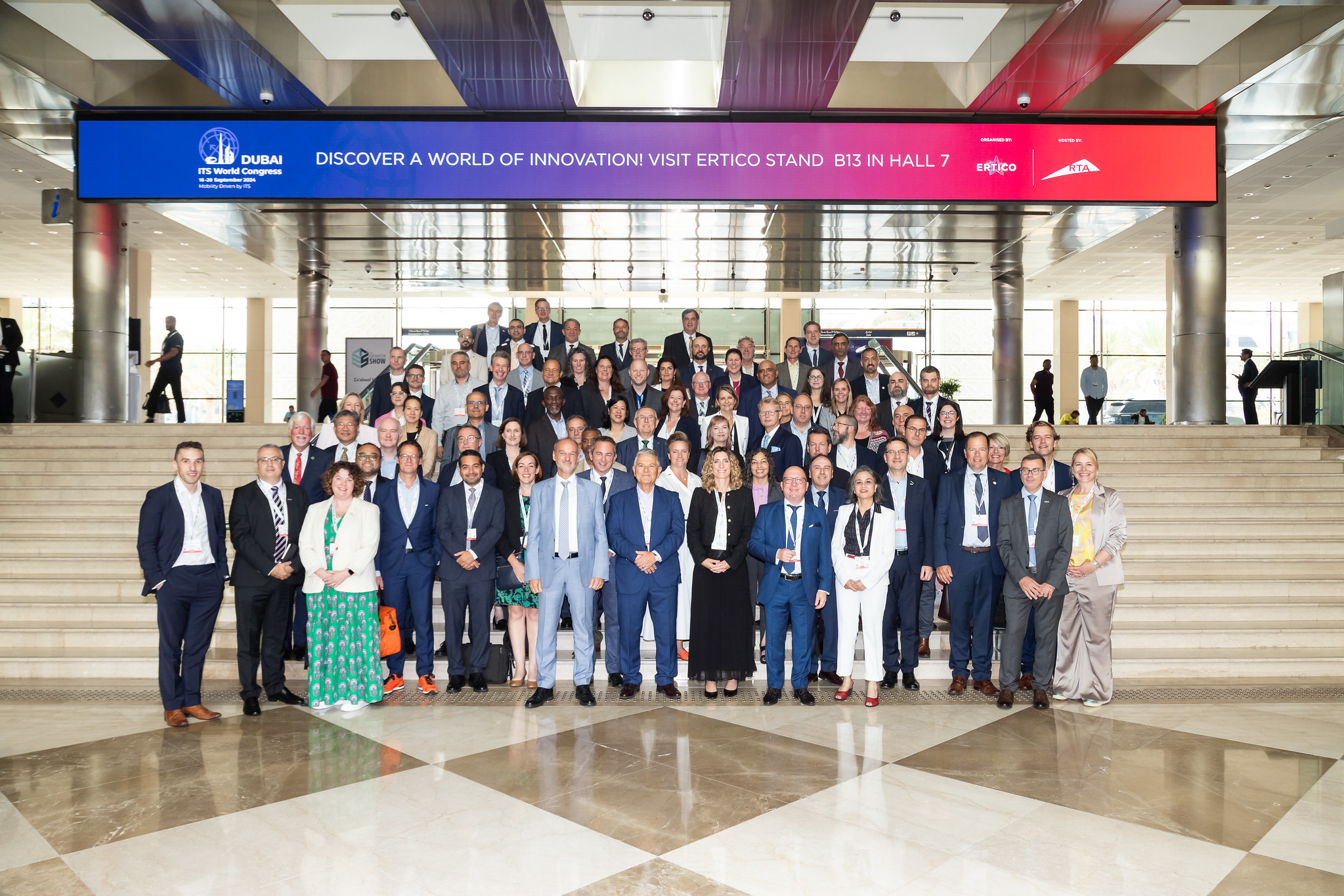Dubai, UAE, 16 September – Global leaders and decision-makers convened at the Future of Mobility Summit, held during the 30th ITS World Congress, to discuss the urgent need for mobility stakeholders to attain sustainability goals. The exclusive, invitation-only event brought together Government and Ministerial representatives from 20 countries, along with 25 representatives from local and regional governments, and 10 international organisations to reflect on ways to assess the impact of mobility initiatives in alignment with global sustainability goals. Key topics included social equity, data-driven policy, technological standards, and the integration of transport with economic indicators. The Summit emphasised the need to turn ambition into action and move from discussion to measurable progress in advancing global sustainability goals.
Government, public authority and industry leaders at the Future of Mobility Summit highlighted the importance of establishing a unified framework to guide the global transition towards safe, resilient, and environmentally responsible transport systems. The focus during this cross-regional and cross-sectoral exchange was on two of the sustainability pillars: the social and the economic. In emphasising the urgency of aligning efforts across borders and sectors, discussions also centred on the role of technology and policy as key facilitators of this transition.
Governmental representation at the Summit included the Ministries of Transport, Climate, Environment, Economy, Communications, Innovation, Technology, Infrastructure, Energy, Water, and Civil Aviation. This broad participation reflected the multi-faceted approach needed to achieve sustainability in mobility, with participants underscoring the interconnected nature of these sectors in driving global progress.
For the first time, participants elaborated on the way forward in developing global indicators that could serve as benchmarks for sustainable mobility. The interplay of innovation and regulation was a central theme. With Summit participants divided into six focus groups, the discussions delved into how sustainability can be integrated into future mobility solutions. The role of ITS in ensuring that transport systems remain equitable, efficient, and environmentally sound was considered quintessential by all.
The Future of Mobility Summit concluded with an agreement among participants that any universal set of sustainable mobility indicators must consider some key issues because sustainable transport touches on a wide range of social and economic factors. ‘Intersectionality’ was a crucial concept in the call to mobility leaders to look beyond traditional transport systems. Along with social considerations such as equity and workforce development, there was also a call for integrating land use and transport for economic impact in smart cities.
The emphasis on value-driven policies, which is only possible with clear data collection, understanding, and use was a common theme. There are lessons to be learnt from the European Commission’s Sustainable Urban Mobility Indicators, but only if the framework is well understood by those for whom it is designed. Technology was seen as a tool to support data-driven policy but not a deciding factor. While calling for more global standards and interoperability, there was consensus that any study of sustainable mobility must be user-centric. Just as there is no use for technology without the users, the effectiveness of policies cannot be fully realised unless citizens embrace them, often as a result of effective storytelling.
Summit leaders agreed that ITS must be recognised as a prominent contributor to sustainable mobility. The statement “global indicators must be globally fair” also highlighted the need for many regions in the world of securing proper financing to deliver on its promise. ERTICO CEO, Mr Joost Vantomme, said “We have taken a big step in turning ambition into action towards achieving global sustainability and productivity goals at the Future of Mobility Summit. Decision-makers from across the mobility ecosystem participated in discussions that are invaluable in identifying key sustainability goals, promoting global cooperation, and accelerating technological integration towards sustainable and smart mobility.”
For media inquiries, please contact:
Congresspr@mail.ertico.com

